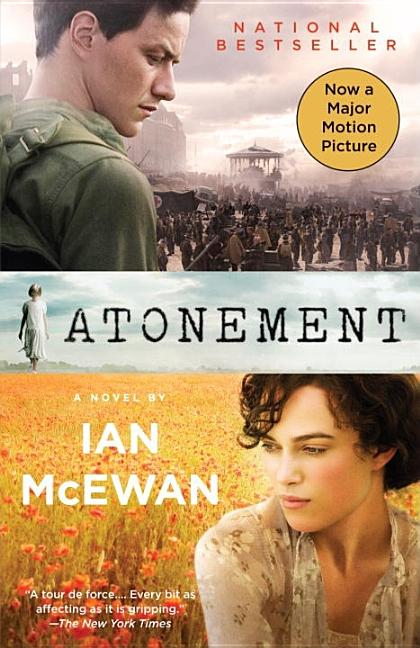
The second part of the novel follows him as he tries to bid retreat from France, thinking all the while of Cecilia. He gets out early, on the condition that he serve in the military, and World War II promptly breaks out. Naturally, everything turns to shit after that.

They are, after all, eager to solve the crime – and Robbie is, after all, just the housekeeper’s son.

She identifies him to the police as the rapist, and any time she wavers, the adults bully her back into certainty. Lola is unable, or unwilling, to identify her attacker, but Briony declares with some certainty that it was Robbie (“knowing”, as she does, that he’s a sexual predator). This is the key moment, the pivotal point of the whole novel. Lola – another cousin – is attacked in the dark, by a man Briony decides must have been Robbie. Mid-way through, the two youngest children – cousins of Cecilia and Briony – decide to “run away”, and the family sets out to search for them.

There’s a dinner party, and he spends most of it trying to pretend he’s not staring. He’s just a young bloke with a hard-on for the rich girl in the pretty green dress. Briony, being a nosy parker with a tendency to the dramatic, witnesses all of this and decides that Robbie is some kind of sexual predator hell-bent on devouring every virgin in his path. Basically, Cecilia and Robbie have a few moments of heady flirtation, followed by a passionate – ahem – embrace in the library room. McEwan seems hell-bent on making mountains out of molehills in this first part, but I’ll try and sum it up as best I can.

Her point of view alternates with that of Cecilia, her older sister, who recently graduated from Cambridge (with a “humiliating third”), and Robbie Turner, the housekeeper’s son (who got a first from Cambridge, despite his humble beginnings). She had planned to put on a play to celebrate her much older brother’s return to the family’s country estate, but her young cousins lack the acting chops to bring her vision to life. It starts off with Briony Tallis, a 13-year-old girl, kicking up a big stink. That should’ve been my first red flag I’m still quite tired of WWII historical fiction (as though there’s not any other conflicts or time periods we could write and read about), but I persisted on the promise that it wasn’t really about-about the war, it was about the domestic drama playing out in one tiny corner of it. (If you do, I’ll get a small commission, and you’ll get my eternal gratitude!)Ītonement is set across three time periods: England just before the Second World War, France during it, and back to England in the present day.


 0 kommentar(er)
0 kommentar(er)
